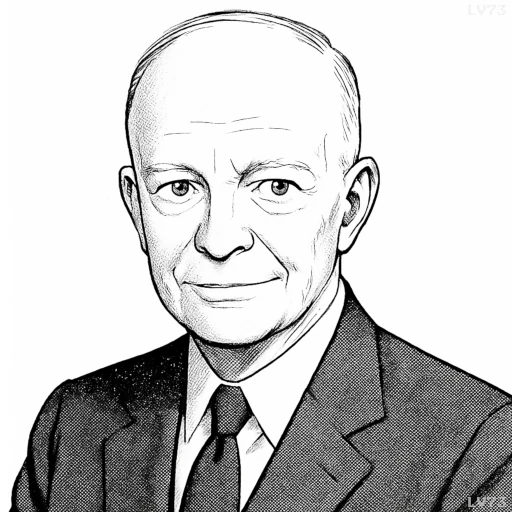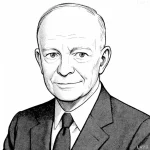“If men can develop weapons that are so terrifying as to make the thought of global war include almost a sentence for suicide, you would think that man’s intelligence and his comprehension… would include also his ability to find a peaceful solution.”

- October 14, 1890 – March 28, 1969
- American
- The 34th President of the United States, General, Military Leader
table of contents
Quote
“If men can develop weapons that are so terrifying as to make the thought of global war include almost a sentence for suicide, you would think that man’s intelligence and his comprehension… would include also his ability to find a peaceful solution.”
Explanation
In this reflective and urgent quote, Eisenhower highlights a profound irony of modern civilization: humanity has developed the technological genius to create weapons of mass destruction, yet it still struggles to use that same intelligence to avoid war. He suggests that the same minds capable of unleashing catastrophic violence should be equally capable of crafting diplomatic, moral, and cooperative paths to peace. The quote is both a lament and a challenge—a call for humanity to match its scientific progress with ethical and political maturity.
The historical context is the Cold War era, when nuclear arms proliferation reached alarming levels, and the prospect of global annihilation became a genuine concern. Eisenhower, a five-star general and former Supreme Allied Commander turned president, was deeply aware of the devastating power of modern warfare. His administration balanced deterrence with efforts to promote arms control and peaceful diplomacy, reflecting his belief that military strength should serve peace, not provoke destruction.
Today, the quote resonates amid continued nuclear threats, military conflicts, and global instability. Eisenhower’s words serve as a timeless reminder that intelligence is not merely the capacity to build powerful tools, but the wisdom to use them for the greater good. His vision calls for a world where reason and conscience guide leadership, and where peace is seen not as idealism, but as a rational and urgent imperative.
Would you like to share your impressions or related stories about this quote in the comments section?



